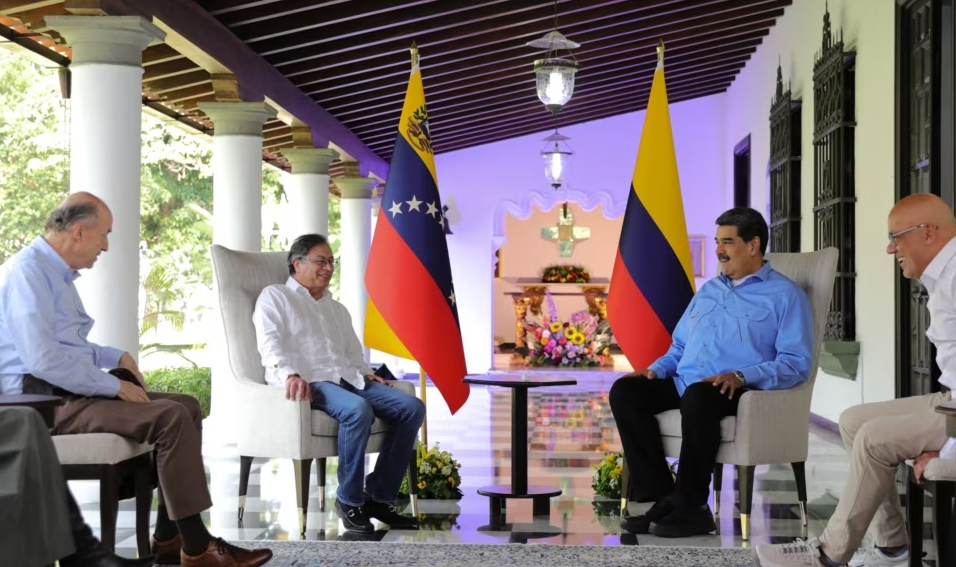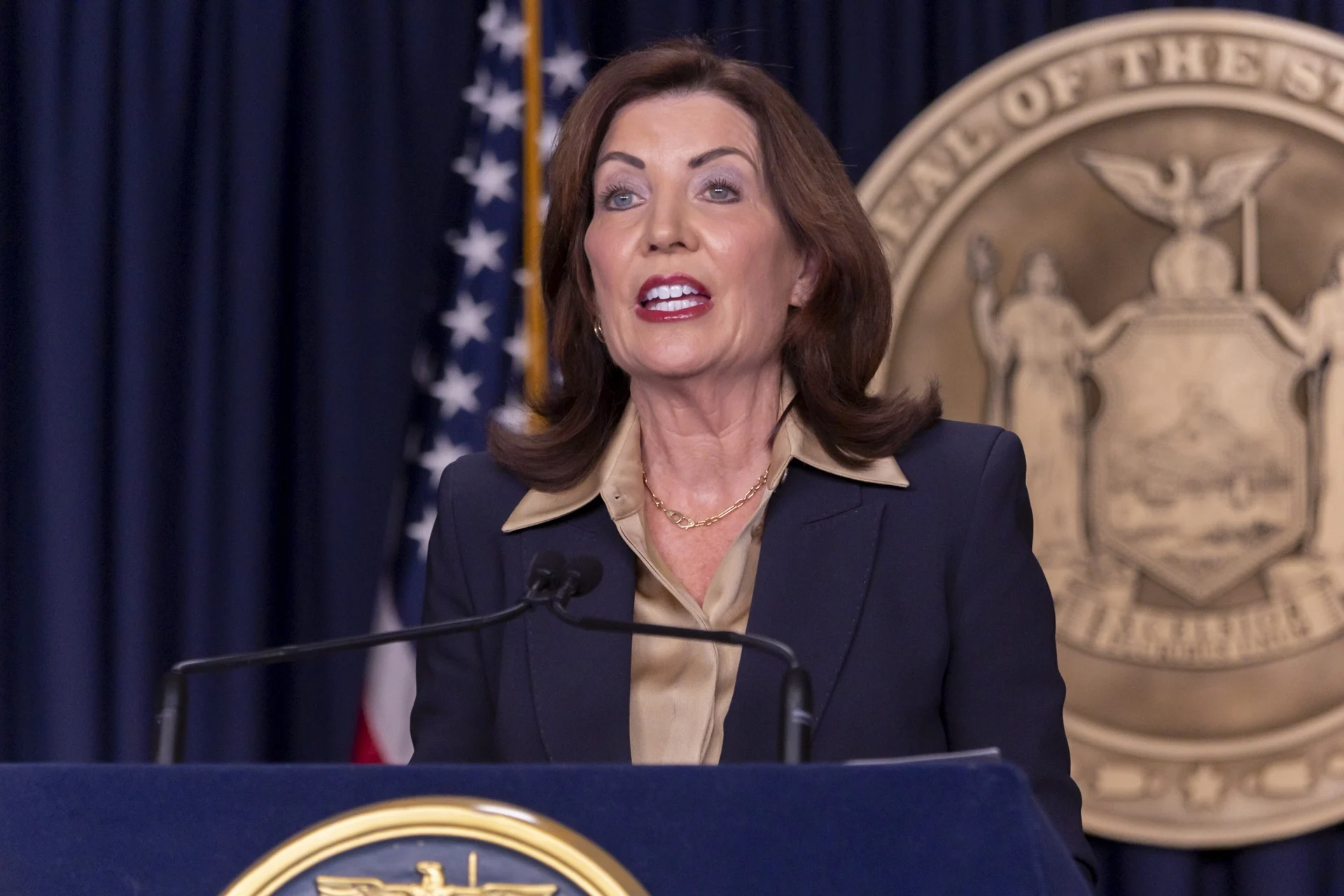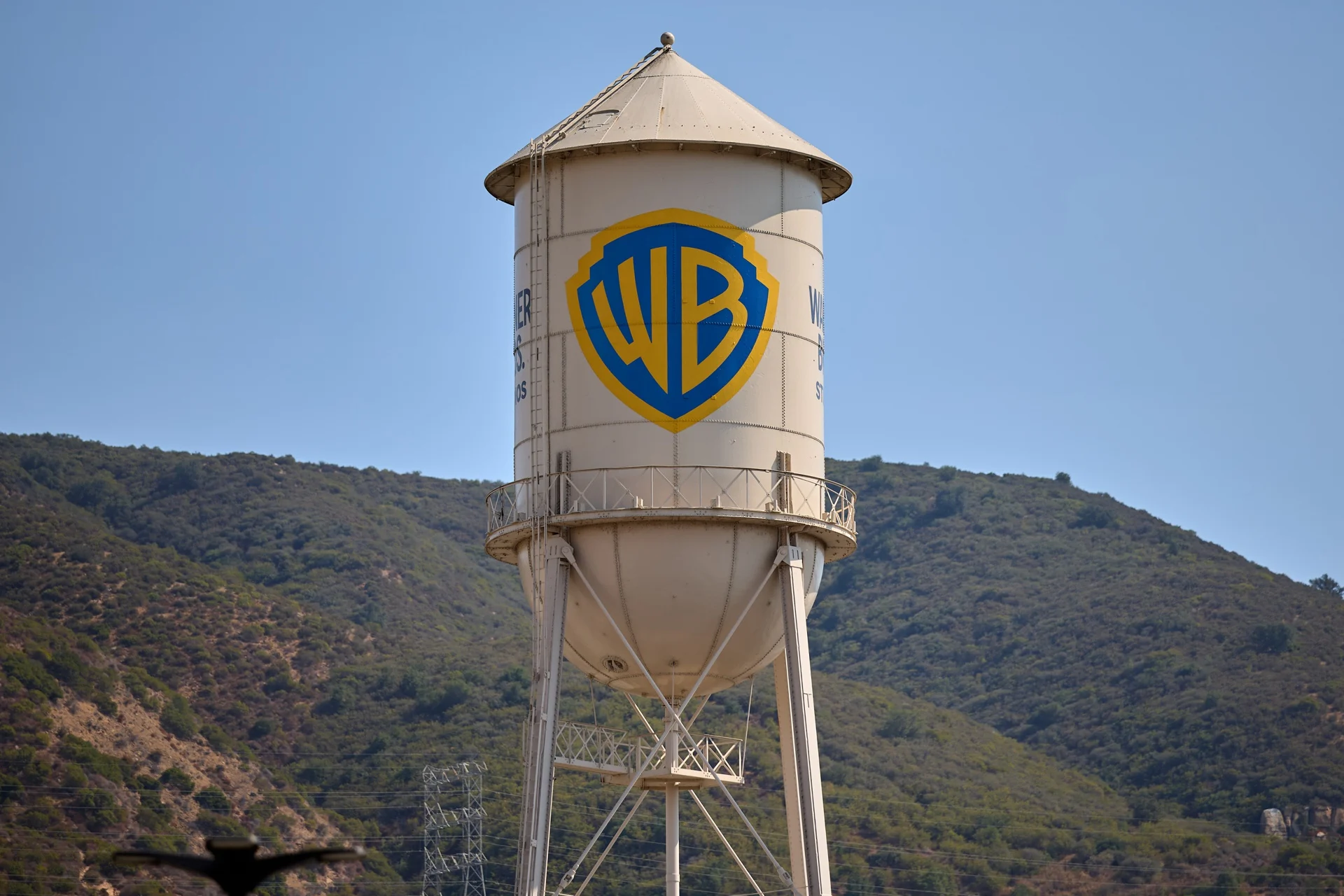International
Maduro and Petro meet for the fourth time in just a few months

March 24 |
The presidents of Venezuela and Colombia, Nicolás Maduro and Gustavo Petro, met on Thursday in Caracas where they addressed issues of economic, commercial, financial, political and cultural cooperation, according to official sources.
“Productive and warm working meeting with the President of the Republic of Colombia, Gustavo Petro. We set out to deepen the alliances between Venezuela and Colombia, and we are achieving it with union and commitment. Always welcome to this sister land!”, Maduro simply wrote on his Twitter account on Thursday night.
Shortly after, through the official account of the Presidency of Colombia, it was reported that the leaders discussed issues related to the “joint fight against drug trafficking, the opening of consulates and the Summit of countries of the region to be held within the framework of the Amazon Cooperation Treaty Organization (ACTO)”.
The meeting, in which several high-ranking officials participated, among them the Colombian Foreign Minister, Alvaro Leyva; the president of the Venezuelan National Assembly, Jorge Rodriguez; the Colombian ambassador in Venezuela, Armando Benedetti, took place at the Aquiles Nazoa Cultural House, former presidential residence, and ended without a public statement.
Petro’s visit was scheduled for Monday, but was cancelled amid a corruption scandal in the state-owned oil industry, Petroleos de Venezuela (PDVSA), for which several high-ranking public officials have been arrested.
Following the reestablishment of diplomatic relations in August last year, after Petro took office, the leaders have already held three bilateral meetings in Caracas and one at the Atanasio Girardot International Bridge, which links the state of Táchira with the Department of Norte de Santander.
On that occasion, in February of this year, they signed a partial scope agreement of a commercial nature and Petro said he hoped that the bridges “will be filled with trade” and “people” on both sides of the border.
Consulted by Voice of America, Juan Francisco Contreras, internationalist and president of the College of Internationalists of Venezuela (CODEIV), exposes that the absence of details of the agenda generates “many speculations” and considers that one of the topics that has caused Petro’s frequent visits to Caracas are the peace negotiations of his government with the National Liberation Army (ELN).
For the internationalist with studies in security and defense, both Venezuela and Colombia are interested in the demobilization of the groups that are “outside the law on both sides of the border”.
However, he considers that there is a “rush” on the part of Petro to achieve results and believes that the priority should focus on establishing “objectives and guidelines” so that the process “does not end badly” as in the case of the Revolutionary Armed Forces of Colombia (FARC).
In his opinion, Colombia is also interested in a democratic solution to the Venezuelan political crisis, which, he believes, would allow the return of many Venezuelans in the neighboring country.
Contreras does not see, so far, that there has been a real “normalization” in trade relations.
“The way in which the economic policy has been designed in our country has affected Venezuelan businessmen, there is practically no credit, the transportation issue is very complicated, there are many situations that make our businessmen to be in difficult conditions to be able to compete with other businessmen. Changes must be made so that our businessmen can be competitive”, he explains.
In 2015, after a diplomatic crisis with the Colombian government, Maduro ordered to close the passage of vehicles on the border with Colombia and in 2018 the Venezuelan government expelled consular officials.
Relations between Maduro and former President Iván Duque, who recognized Juan Guaidó as interim president of Venezuela, were marked by constant mutual accusations, especially since 2019 when humanitarian aid was attempted to enter through the border.
International
New York Announces First 2,000 Seats in Universal 2-K Program

The Governor of New York, Kathy Hochul, and New York City Mayor Zohran Mamdani took another step today in their universal early education agenda by announcing the communities that will have access to the first 2,000 seats in the new 2-K program this fall — an initiative backed by a $73 million investment.
The funding is part of the $1.2 billion package previously unveiled by Hochul to strengthen child care and early childhood education across the city, one of the key campaign promises of the now Social Democratic mayor.
At the time of the announcement, the governor also outlined additional funds to reinforce the existing 3-K early education infrastructure, a program launched under former Mayor Bill de Blasio (2014–2021).
When the 2-K initiative was introduced in January, Mayor Mamdani explained that its first phase would offer 2,000 seats, with the goal of eventually expanding into a universal program — a commitment supported by the governor.
State investment in child care and preschool services is expected to increase to $4.5 billion by fiscal year 2027.
Among the first communities set to benefit from the 2,000 seats are Upper Manhattan and Inwood — areas with large Dominican populations — as well as Fordham and Kingsbridge in the Bronx, a borough with a Latino majority.
In East Brooklyn, Canarsie, Brownsville, and Ocean Hill will also be included. Meanwhile, Ozone Park and the Rockaways are among the neighborhoods that will see the rollout of the 2-K program.
International
Warner Bros. Developing First ‘Game of Thrones’ Movie With ‘Andor’ Writer

Warner Bros. is developing the first feature film based on the hit saga Game of Thrones, with Beau Willimon — screenwriter of Andor — attached to direct, according to a report published Tuesday by Page Six.
The project, currently in early development, will focus on the conquest of King Aegon I Targaryen. A separate television adaptation centered on the same historical storyline within the franchise is also in early stages at HBO.
However, the outlet noted that it remains unclear whether the film will move forward following the recent acquisition of Warner Bros. Discovery by Paramount Skydance.
If the merger is finalized, the movie could potentially be shelved, although that scenario appears unlikely given that the Game of Thrones franchise remains one of HBO’s most valuable and beloved properties.
After six seasons adapting the work of George R. R. Martin, the platform expanded the universe with House of the Dragon, a prequel series set 200 years before the events of Game of Thrones that explores the history of House Targaryen.
International
Spain’s Prime Minister to Address Nation Amid Trump’s Trade Threats

The Prime Minister of Spain, Pedro Sánchez, will deliver an institutional address this Wednesday at the Moncloa Palace regarding the escalating situation in the Middle East and recent threats directed at Spain by U.S. President Donald Trump.
The Spanish government announced that Sánchez will make a statement at 9:00 a.m. local time to outline his position on the latest developments following the U.S. and Israeli attacks on Iran.
Sánchez is expected to reiterate Spain’s reasons for opposing the use of U.S. military bases on Spanish soil in the operation—an action he has already described as being outside international law—while also expressing criticism of the Iranian regime.
Government sources indicated that the address had been planned prior to Trump’s remarks criticizing Spain’s stance. However, following those comments, Sánchez is now also expected to respond directly to the U.S. president’s statements.
Trump has threatened to “cut all trade with Spain” and said he wants “nothing to do” with the country after Madrid refused to authorize the use of the Morón and Rota military bases in southern Spain for operations against Tehran.
The U.S. president also labeled Spain “a terrible NATO partner” and warned that “no one” would tell him he could not use the facilities.
In response, the Spanish government stated that Spain fulfills its commitments to NATO and European defense. It also warned Trump that any review of bilateral trade relations must respect international law and the agreements in place between the European Union and the United States.
-

 International2 days ago
International2 days agoIran Reports 201 Dead, 747 Injured After U.S. and Israeli Strikes
-

 International2 days ago
International2 days agoPope Leo XIV Urges End to ‘Spiral of Violence’ in Middle East
-

 International4 days ago
International4 days agoTrump Floats “Friendly Takeover” of Cuba Amid Rising Tensions
-

 Sin categoría3 days ago
Sin categoría3 days agoTrump: ‘We Think It’s True’ Amid Claims Iran’s Supreme Leader Was Killed
-

 International3 days ago
International3 days agoSecurity Council to Hold Emergency Meeting on Middle East Crisis
-

 International1 day ago
International1 day agoBrazil’s Supreme Court Rejects Bolsonaro’s Bid for House Arrest
-

 International4 days ago
International4 days agoArgentina’s Senate Reviews Milei-Backed Labor Overhaul
-

 International1 day ago
International1 day agoAnti-ICE Billboard Campaign Targets Immigration Spending in 31 U.S. Cities
-

 International1 day ago
International1 day agoTrump Warns of ‘Major Wave’ of Attacks as Iran Conflict Escalates
-

 International1 day ago
International1 day agoMexico Calls for Immediate Probe After National Dies in ICE Custody
-

 Central America1 day ago
Central America1 day agoPanama Canal Monitoring Trade as Middle East Conflict Disrupts Shipping
-

 International1 day ago
International1 day agoBolivia Orders Three Investigations Into Deadly Military Plane Crash
-

 International3 hours ago
International3 hours agoNew York Announces First 2,000 Seats in Universal 2-K Program
-

 International3 hours ago
International3 hours agoSpain’s Prime Minister to Address Nation Amid Trump’s Trade Threats
-

 International3 hours ago
International3 hours agoWarner Bros. Developing First ‘Game of Thrones’ Movie With ‘Andor’ Writer
-

 Central America3 hours ago
Central America3 hours agoGuatemala’s Attorney General Fails in Bid for Top Court Seat Amid Corruption Allegations




























